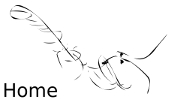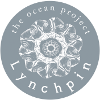Living Data
2014 Conversations
Disclaimers, Copyrights and Citations
Conversations/Index 2010 2011 2012 2013 2014 2015 2016 2017 2018 2019 2020 2021 2022 2023 2024
"Every interaction is a risk you might be transformed.
Creation is conversation, as is human life."
Jonathan Marshall, Anthropologist
Art and science of education
Documentary produced September 2014
by journalist Jen Ng
University of Technology, Sydney (UTS)
Transcript
Jen Ng:
Art has the potential to increase self reflection and self awareness and influence the way people think and behave. The University of Technology, Sydney, hosted the Living Data: Evolving Conversations exhibition which brought 30 scientists and artists together from across the globe to engage in conversations about sustaining life and minimising the harmful impact of humans.
In an effort to create awareness on the issue of climate change, inspired by a scientific expedition to Antarctica, artist and UTS Creative Fellow Dr Lisa Roberts developed this exhibition to transform complex scientific research into visual works.
Lisa Roberts:
Conversations between scientists, artists and people in other disciplines, are vital for us to identify the ways that we understand, and the common iconography that we use across disciplines. Unless we have conversations we don't recognise the connections between us and the natural world.
Jen Ng:
According to Research Fellow at UTS, Dr Jonathan Marshall, climate change is a symolic event. He understands that art, which employs symbols and myths, allows us to try to conceive the inconceivable.
Jonathan Marshall:
The main thing is that people are never going to be convinced by dispassionate facts. That's just not how we work. OK, facts have to come from trustable sources. They have to be phrased in language that we are prepared to accept. They have to meld with our existential myths or they will be rejected completely. With the artistic process, part of what you are trying to do is to invent new symbols whereby other people can then represent the world to themselves in ways which are actually more constructive.
Jen Ng:
According to the fourth annual survey of attitudes to climate change, by the CSIRO, since 2010 there has been a gradual decrease in peoples' concern for its impact. Professor Bill Gladstone, the Head of the School of the Environment at UTS says there is a long way to go in engaging people with climate change as many are turned off by how big the issue is.
Bill Gladstone:
Getting people to change their behaviours requires more than us just giving them the science. We have to be able to reach into people's attitudes and values and beliefs about the environment, about how they can make a difference.
Jen Ng:
Dr Lisa Roberts wants to see more artists and scientists engaging in conversations. She hopes this will inspire their work for making information interesting for audiences.
Lisa Roberts:
My dream is that we then don't regard art and science as separate, or that one is more valuable than the other, that we see our selves as contributing as our selves, being true to our natures, true to our passions, to a really really important global story.












